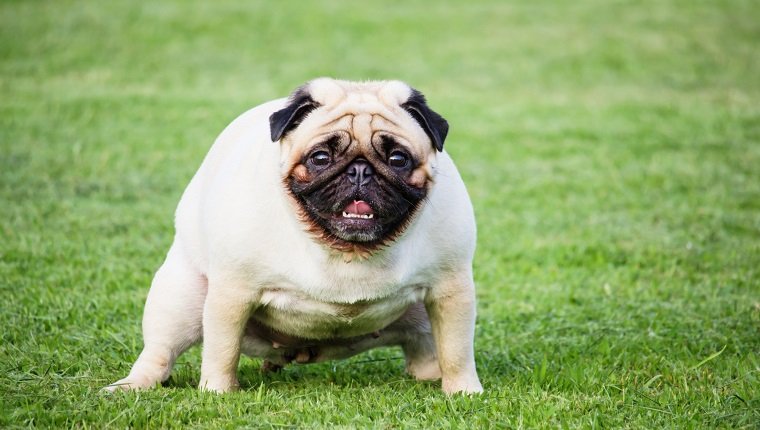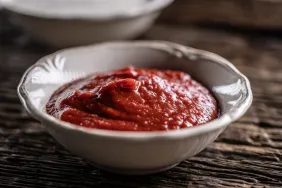Hematochezia in dogs is the medical term for the appearance of bright red blood in stools. Usually this happens when there’s bleeding in a dog’s lower digestive system, including the colon or rectum.
Melena, which refers to the appearance of black, tarry feces, is a different condition where dogs pass old blood that has already been digested. Usually, it results from bleeding in the upper digestive tract, though this is not always the case.
Hematochezia can be a symptom of anything from a dog swallowing a small object like a piece of bone or plastic toy to more serious medical conditions like tumors in the digestive tract.
Sometimes blood appears in the feces only once and doesn’t require medical treatment for the condition to resolve itself. However, if hematochezia persists and blood continues to appear in a dog’s stool, it shouldn’t be ignored.
If you see the symptoms of hematochezia in your dog consistently, then you must consult your veterinarian immediately so they can give a proper diagnosis and begin treatment. Here’s what you should know about the symptoms, causes, and treatments of hematochezia in dogs.
Symptoms Of Hematochezia In Dogs
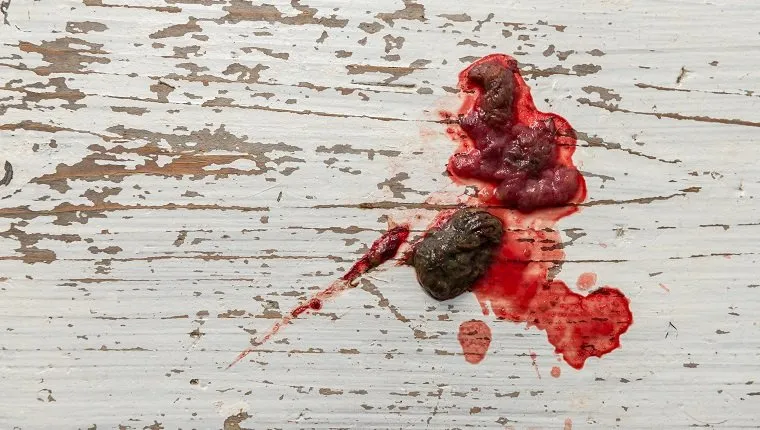
The primary symptom of hematochezia in dogs is the appearance of bright red blood in the feces. Stools may be loose and watery or fully formed, and they can also be discolored or normal looking depending on the cause of the condition.
Dogs may show also signs of straining to defecate, defecate more frequently, or show signs of other illness. On the other hand, they may show no other symptoms at all. Again, this depends on the cause.
Blood may appear as a few droplets or streaks, and it can either be mixed in with the feces or lie on top of it. Additionally, the blood can appear one time, intermittently, or consistently every time a dog defecates.
If it appears in your dog more than once, then you should treat it seriously and consult your vet.
Causes of Hematochezia In Dogs
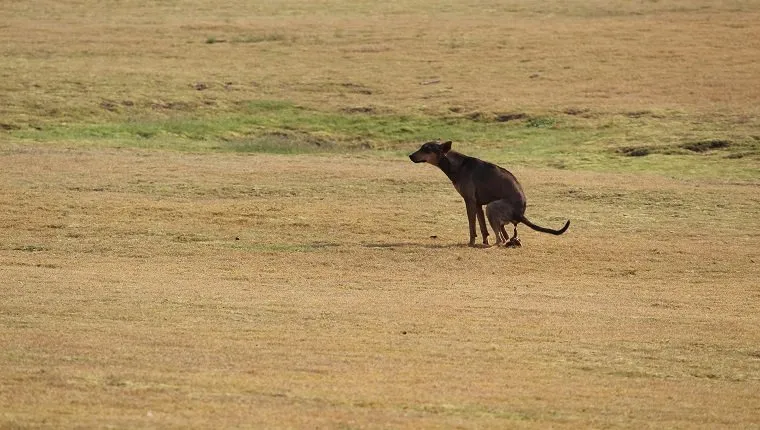
The causes of hematochezia in dogs range from mild to severe, which is why it’s important to get a proper diagnosis.
Most often, the cause is a condition that affects the lower intestinal tract because blood that comes from issues that affect the upper digestive tract is usually at least partially digested and appears black and tarry when it passes.
Here are some of the possible causes of hematochezia in dogs:
- Irritation from swallowing non-digestible material (bone shards, plastic, etc.)
- Inflammatory bowel disease
- Dietary intolerance or allergies
- Bacterial, viral, or parasitic infections
- Polyps
- Clotting disorders
- Colitis
- Colonic neoplasia
- Gastroenteritis
- Intestinal ulcers
- Cancer of the lower bowels
- Intussusception (telescoping of the bowels)
- Injury
- Anal sac abscess
- Megacolon
- Constipation
- Perineal hernia
- Prostate disease
Treatments For Hematochezia In Dogs
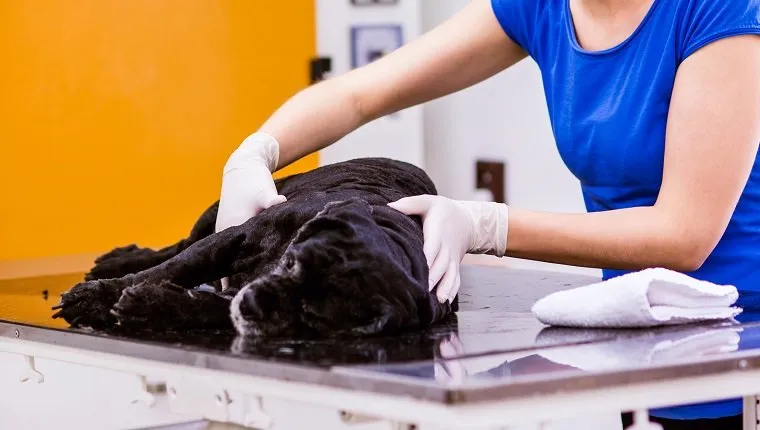
Treatment for hematochezia in dogs can vary widely depending on the cause of the condition. Treatment for minor conditions can include dietary changes, probiotics, antibiotics, anti-inflammatory drugs, or laxatives.
For more severe medical conditions, dogs may need hospitalization and intravenous fluids to prevent dehydration and intervention to stop further internal bleeding. Issues such as cancer or polyps may require surgical treatment.
If your dog suffers from hematochezia, then your vet will prescribe the appropriate treatment after forming a diagnoses. Because the causes vary so much and can be life-threatening, treatment needs to be individualized and should begin early.
Do not leave it up to chance if your dog has blood in their stool. Get to the vet, and get the right treatment.
Has your dog ever had blood in their stool? What was the cause, and how did your vet treat it? Let us know in the comments below!
